Related Research Articles

John Francis "Jaco" Pastorius III was an American jazz bassist, composer, and producer. He recorded albums as a solo artist and band leader and was a member of the jazz fusion group Weather Report from 1976 to 1981. He also collaborated with numerous artists, including Pat Metheny and Joni Mitchell.

Tadley Ewing Peake Dameron was an American jazz composer, arranger, and pianist.
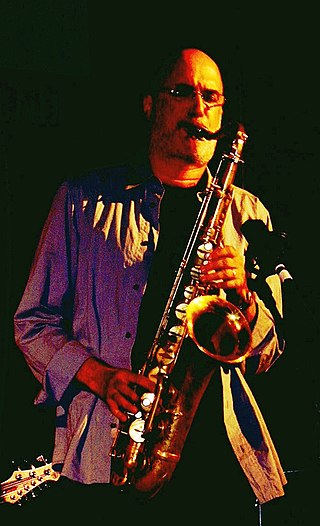
Michael Leonard Brecker was an American jazz saxophonist and composer. He was awarded 15 Grammy Awards as a performer and composer, received an honorary doctorate from Berklee College of Music in 2004, and was inducted into the DownBeat Jazz Hall of Fame in 2007.

Jean-Baptiste Frédéric Isidor, Baron Thielemans, known professionally as Toots Thielemans, was a Belgian jazz musician. He was mostly known for playing the chromatic harmonica, as well as his guitar and whistling skills, and composing. According to jazz historian Ted Gioia, his most important contribution was in "championing the humble harmonica", which Thielemans made into a "legitimate voice in jazz". He eventually became the "preeminent" jazz harmonica player.
"Moonlight in Vermont" is a popular song about the U.S. state of Vermont, written by John Blackburn (lyrics) and Karl Suessdorf (music) and published in 1944. It was introduced by Margaret Whiting in a 1944 recording.
The following is a listing of the jazz pianist Bill Evans' original albums. He recorded over 50 albums as a leader between 1956 and 1980 and also played as a sideman on nearly as many more. He broke new ground in many of his piano trio, duet and solo recordings. Several of those won or were nominated for Grammy Awards.
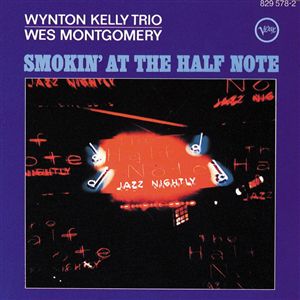
Smokin' at the Half Note is an album by Wes Montgomery and the Wynton Kelly Trio that was released in 1965. It was recorded live in June 1965 at the Half Note Club in New York City and September 22, 1965 at Van Gelder Studios in Englewood Cliffs, New Jersey. The album combines guitarist Montgomery with the Miles Davis rhythm section from 1959–1963 of Wynton Kelly, Paul Chambers, and Jimmy Cobb. The album's versions of "Unit 7" and "Four on Six" have helped to establish these pieces as jazz standards.
"What Kind of Fool Am I?" is a popular song written by Leslie Bricusse and Anthony Newley and published in 1962. It was introduced by Anthony Newley in the musical Stop the World – I Want to Get Off. It comes at the end of Act Two to close the show. Bricusse and Newley received the 1961 Ivor Novello award for Best Song Musically and Lyrically. At the 1963 Grammy Awards, it won the award for Song of the Year and was the first by Britons to do so.
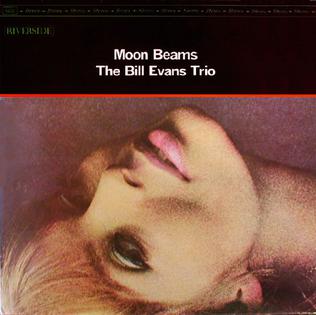
Moon Beams is a 1962 album by jazz musician Bill Evans, and the first trio album recorded by Evans after the death of bassist Scott LaFaro.
"You Don't Know What Love Is" is a popular song of the Great American Songbook, written by Don Raye (lyrics) and Gene de Paul (music) for the Abbott and Costello film Keep 'Em Flying (1941), in which it was sung by Carol Bruce. The song was deleted from the film prior to release. The song was later included in Behind the Eight Ball (1942), starring the Ritz Brothers. "You Don't Know What Love Is" was again sung by Carol Bruce; it was her third and final film until the 1980s.
Bruce Ditmas is an American jazz drummer and percussionist.
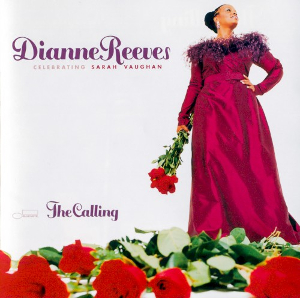
The Calling: Celebrating Sarah Vaughan is a 2001 studio album by Dianne Reeves, recorded in tribute to Sarah Vaughan and mostly featuring songs closely identified with the great singer. In the liner notes, Reeves wrote: "Making this CD is the fulfillment of a dream born when I first heard Sarah Vaughan as a teenager. The dream continued to grow as I marveled at her magical touch with lyrics, melodies, harmonies and timbre. ... She fearlessly explored unfamiliar areas in the realm of vocal musical expression, reaching, ascending, grasping and possessing. Sarah was never content to luxuriate in her past laurels, but her musical appetite propelled her forward throughout her career. She never deserted her calling." Reeves also mentions that her first Vaughan album was Sarah Vaughan with Michel Legrand (1972) and tells of how she met Vaughan at a 1975 tribute concert for Cannonball Adderley. She told a woman she was speaking with that she loved Vaughan, not realizing that the woman was Vaughan herself.

Trio '65 is a studio album by American jazz pianist Bill Evans and his Trio, released in 1965.
"Beautiful Love" is a popular song composed by Wayne King, Victor Young and Egbert Van Alstyne with lyrics by Haven Gillespie. It was introduced by the Wayne King Orchestra in 1931. The song has been called the "second favourite number" of King, after the Orchestra's theme song "The Waltz You Saved for Me".
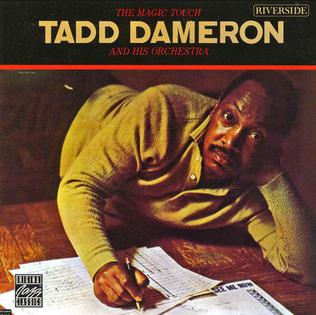
The Magic Touch is a 1962 album by jazz pianist and arranger Tadd Dameron and His Orchestra, released on Riverside Records. It was also Dameron's final completed work before his death three years later.
"Everything Happens to Me" (1940) is a pop standard written by Tom Adair (lyrics) and Matt Dennis (music). It was first recorded by the Tommy Dorsey Orchestra featuring Frank Sinatra. Unusually, the song focused on Sinatra's vocal, with no trombone solo by Dorsey. Years later, Sinatra rerecorded the song with the Hollywood String Quartet; this version was featured on his 1957 album Close to You.

Chet is an album by jazz trumpeter Chet Baker first released in 1959. The record is sometimes subtitled The Lyrical Trumpet of Chet Baker. Chet features performances by Baker with alto flautist Herbie Mann, baritone saxophonist Pepper Adams, pianist Bill Evans, guitarist Kenny Burrell, bassist Paul Chambers, and either Connie Kay or Philly Joe Jones playing drums. It was recorded in December 1958 and January 1959 and released on the Riverside label.

Big Bags is an album by vibraphonist Milt Jackson featuring big band performances arranged by Tadd Dameron and Ernie Wilkins recorded in 1962 and released on the Riverside label.

You Can't Go Home Again is an album by trumpeter Chet Baker which was recorded in 1977 and released on the Horizon label. In 2000 the album was rereleased as a double CD with additional tracks from The Best Thing for You (1989) along with previously unreleased tracks and alternate takes.

The Best Thing for You is an album by trumpeter Chet Baker which was recorded in 1977 but not released on the A&M label until 1989, after the performer's death. The tracks were rereleased as part of the double CD reissue of You Can't Go Home Again in 2000 with previously unreleased tracks and alternate takes.
References
- ↑ Giddins, Gary (May 18, 2000). Visions of Jazz: The First Century. Oxford University Press. p. 308. ISBN 978-0-19-513241-0 . Retrieved 7 December 2011.
- ↑ Gioia, Ted (May 9, 2011). The History of Jazz . Oxford University Press. p. 214. ISBN 978-0-19-539970-7 . Retrieved 7 December 2011.
- 1 2 3 "If You Could See Me Now". Jazz Standards.com. Retrieved December 7, 2011.
- ↑ "Jaco Pastorius - If You Could See Me Now". YouTube . Retrieved March 25, 2013.
- ↑ "Moon & Sand - Jacky Terrasson | Songs, Reviews, Credits | AllMusic". AllMusic . Retrieved 27 August 2020.